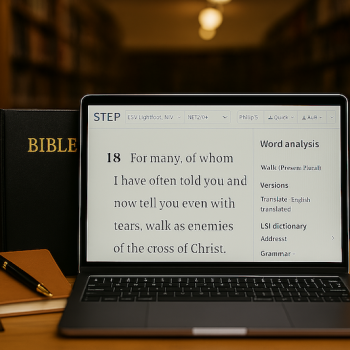Second, never oversimplify and never overcomplicate. Truth is both simple and complex. The scriptures affirm both. The message of the gospel is simple, the way is clear, the path is straight; but the content of the gospel is also imponderable, inscrutable, and unfathomable.
Third, learn with a purpose, and then give purpose to your learning. The bridge between faith and reason is purposeful activity. Study gives us facts, truth, and knowledge; faith gives us values, goodness, and objectives. Both are necessary. Knowledge, in and of itself, is morally neutral until it is put to work in support of some chosen purpose. There is a trouble with truth: Satan knows a lot of truth. He knows the laws of physics, physiology, psychology, and social behavior. What he lacks is the willingness to do what is good. That conviction comes through the Light of Christ and with faith in Jesus. Without the love of Christ, truth is dangerous.
No one, scholars included, operates above the moral law. I continue to be impressed in Alma 32 that what we learn when we plant the seed is not that the seed is true but that it is good. We should know that the gospel is both good and true, for our knowledge will "operate toward [our] salvation or condemnation as it is used or misused."
Fourth, not only must we cultivate and listen to both intellect and spirit but we must apply the steps of repentance in overcoming our rebellious thoughts every bit as much as in rectifying our disobedient actions. I find in the gospel a remarkable ability to harmonize and transcend such stubborn dichotomies as spirit and matter, rights and duties, and human and divine. In no case is that power to unify more significant than in harmonizing the mind and the spirit. The only power that can achieve such unities is the power that truly makes one, the atonement of Jesus Christ. Our minds and our spirits both have need of the atonement. A clean engine runs better, and so do a cleansed spirit and mind.
***
Finally, seek the fullness. What we seek in the dispensation of the fullness of times is the fullness of the everlasting gospel, not just one half or the other of the loaf of the bread of life. Longing to pour out upon the Saints more of what he knew, Joseph Smith once remarked, "It is my meditation all the day, and more than my meat and drink, to know how I shall make the Saints of God comprehend the visions that roll like an overflowing surge before my mind."
Hugh Nibley has similarly said, "Our search for knowledge should be ceaseless, which means that it is open-ended. . . . True knowledge never shuts the door on more knowledge, but zeal often does"; Adam and Abraham had "far greater and more truth than what we have, and yet the particular genius of each was that he was constantly 'seeking for greater light and knowledge.'" We are not likely to have the kind of faith it will take to receive all that the Father has if we have not served him with all that we do have, that is, with all our heart, might, mind, and strength.
This is an excerpt of a chapter from Nurturing Faith through theBook of Mormon: The Twenty-Fourth Annual Sidney B. Sperry Symposium (Salt Lake City: Deseret Book, 1995), 149-86. The full text with academic references may be accessed at the Neal A. Maxwell Institute for Religious Scholarship.
John W. Welch (J.D., Duke University) is the Robert K. Thomas Professor of Law at Brigham Young University's J. Reuben Clark Law School, editor in chief of BYU Studies, and director of publications for the university's Joseph Fielding Smith Institute for LDS History. He is the founder of the Foundation for Ancient Research and Mormon Studies. He serves on the executive committee of the Biblical Law Section of the Society of Biblical Literature.




